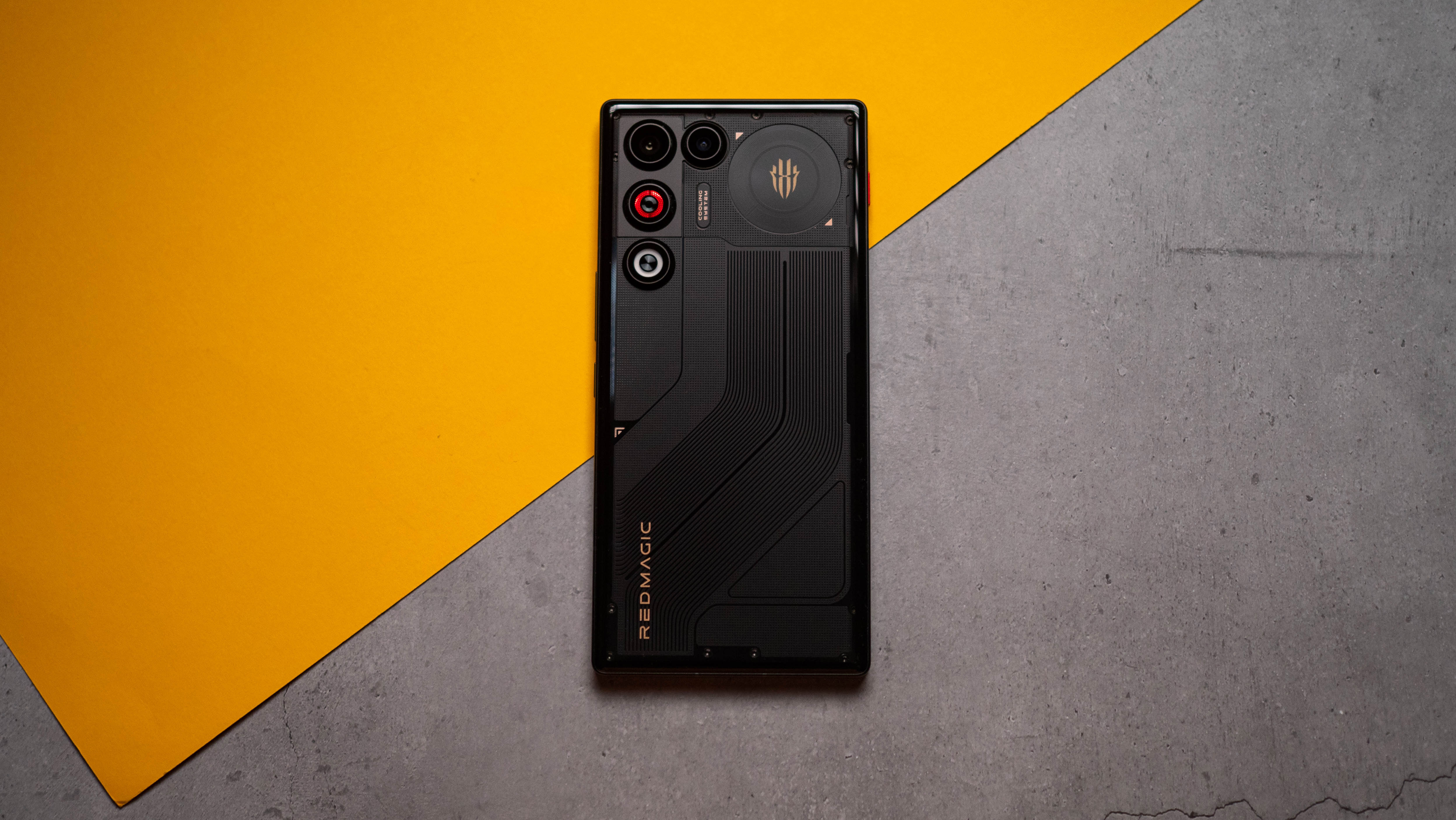Best Synology NAS
These are the best Synology NAS servers you can buy right now.

Get the latest news from Android Central, your trusted companion in the world of Android
You are now subscribed
Your newsletter sign-up was successful
The best Synology NAS servers are usually the best home NAS servers available today. A NAS lets you easily back up data from Windows, macOS, Android, and iOS devices, and you can build a robust media server for streaming audio and video to all devices on your home network. These are the best Synology NAS models you can buy.
Using a NAS server makes it easy to store your media collection in a centralized location. You can host all of your videos and photos and stream these to any connected device on your home network. A NAS server is also useful for backing up data across all of your phones, tablets, and Windows and macOS machines. You can automate this task so the data that you need most is always transferred to the NAS without any intervention from your side.
There are other benefits that don't include media streaming; I use Tailscale's standout VPN to connect to my home network when I'm traveling, a custom mail client, note-taking utility that stores all data privately, and a whole lot more. Let's take a look at the best Synology NAS servers you can buy in 2025.

Harish Jonnalagadda is a Senior Editor covering mobile and networking products at Android Central. In addition to testing way too many phones, he is interested in storage servers and networking, having used several dozen NAS models over the last 10 years — he manages a 350TB homelab.
At a glance
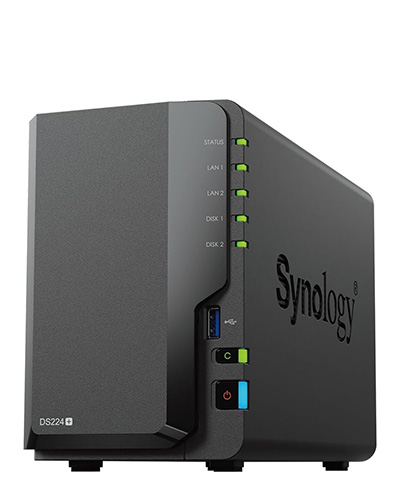
Best overall
The DiskStation DS224+ continues to be the best choice if you're just getting started with a NAS. It has reliable hardware, extensive software utilities, and does a great job when it comes to backing up photos and videos and as a centralized media server.
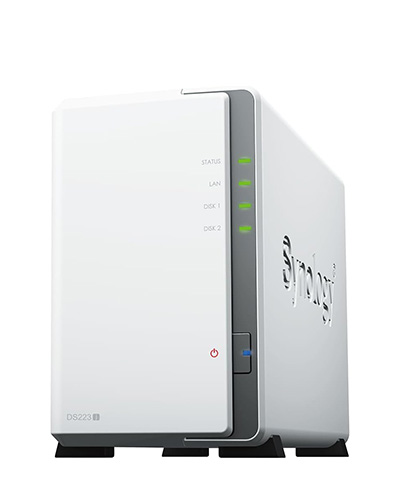
Best value
If you're still not sure whether you need a NAS and want a budget system to test the software, the DS223j is the ideal starting point. While it doesn't have all the software features, it gives you a great entry into the category.
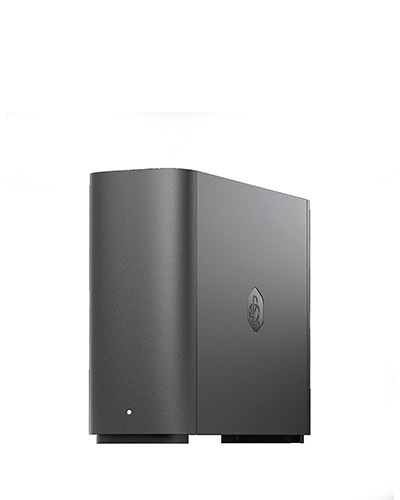
Best starter NAS
The BeeStation isn't a traditional NAS, but it is a good starting point if you're just looking to store photos and videos in a centralized location and want integrated storage. It doesn't have advanced software, but if you just need a basic device to store media, it is a good choice.
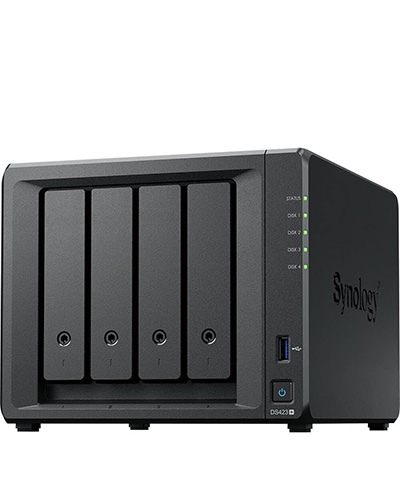
Best Plex NAS
The DiskStation DS423+ has four drive bays, an Intel-based platform that includes Plex transcoding, and dual M.2 SSD slots. It is the ideal choice if you want to build a Plex media server and need hardware transcoding.
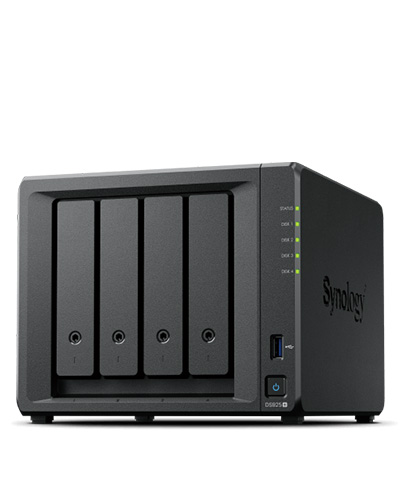
Best 4-bay NAS
I'm finally ready to suggest the DS925+. The DSM 7.3 software update does away with all the HDD limitations, and the changes to the hardware makes this a solid 4-bay NAS.
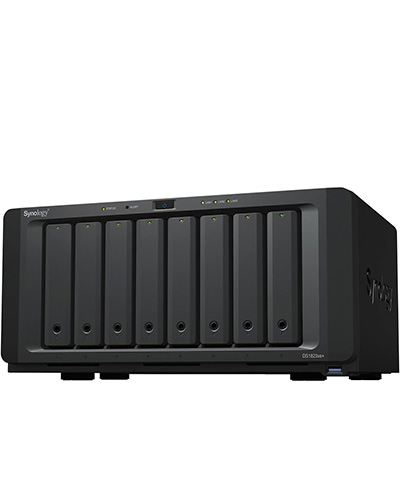
Upgrade pick
The DiskStation DS1823xs+ is my primary NAS, and it is a fantastic choice if you need a high-end NAS system with exhaustive software utilities. It is costly, but you get all the features you need, and with 10 Gigabit Ethernet, the NAS isn't missing anything.
Best overall NAS
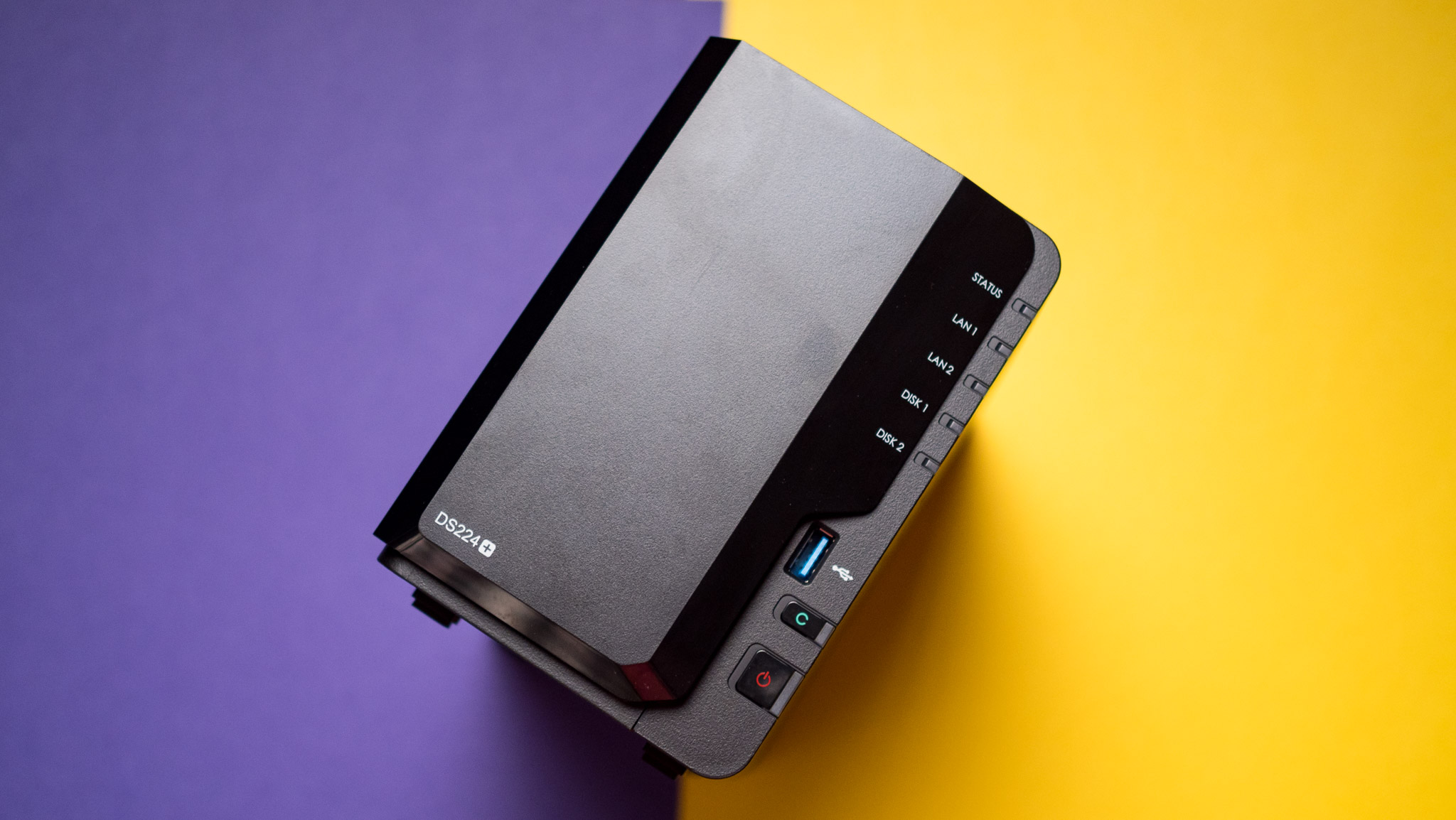
Specifications
Reasons to buy
Reasons to avoid
✅ You need a NAS that doubles as a great Plex server. With the ability to transcode and plenty of potential, the DS224+ is the go-to choice if you want a 2-bay Plex server.
❌You want M.2 SSD connectivity. While the DS224+ gets a lot right, it doesn't have M.2 slots, so if you need to slot in NVMe SSDs, you'll want to get another model.
The DiskStation DS224+ is still my go-to choice if you're just getting started with a NAS or need a model that's reliable in 24/7 use. The Intel-based hardware makes the NAS a great choice as a media server, and as an added bonus, you get hardware transcoding in Plex.
The biggest limitation is that you don't get M.2 SSD slots; the NAS has two traditional HDD bays, and you can add up to 36TB of storage. While I would have liked SSD slots, you're not missing out, and the dual Gigabit Ethernet connectivity should be good enough for most users.
The DS224+ does a great job as a media server; you get a native Plex client, and there are no issues in this regard. It also has the best software in its class, and I used it to back up photos and videos automatically from all my phones. This NAS basically has the right balance between feature-set and affordability, and it is the one to get if you need a new NAS in 2025.
Best value NAS
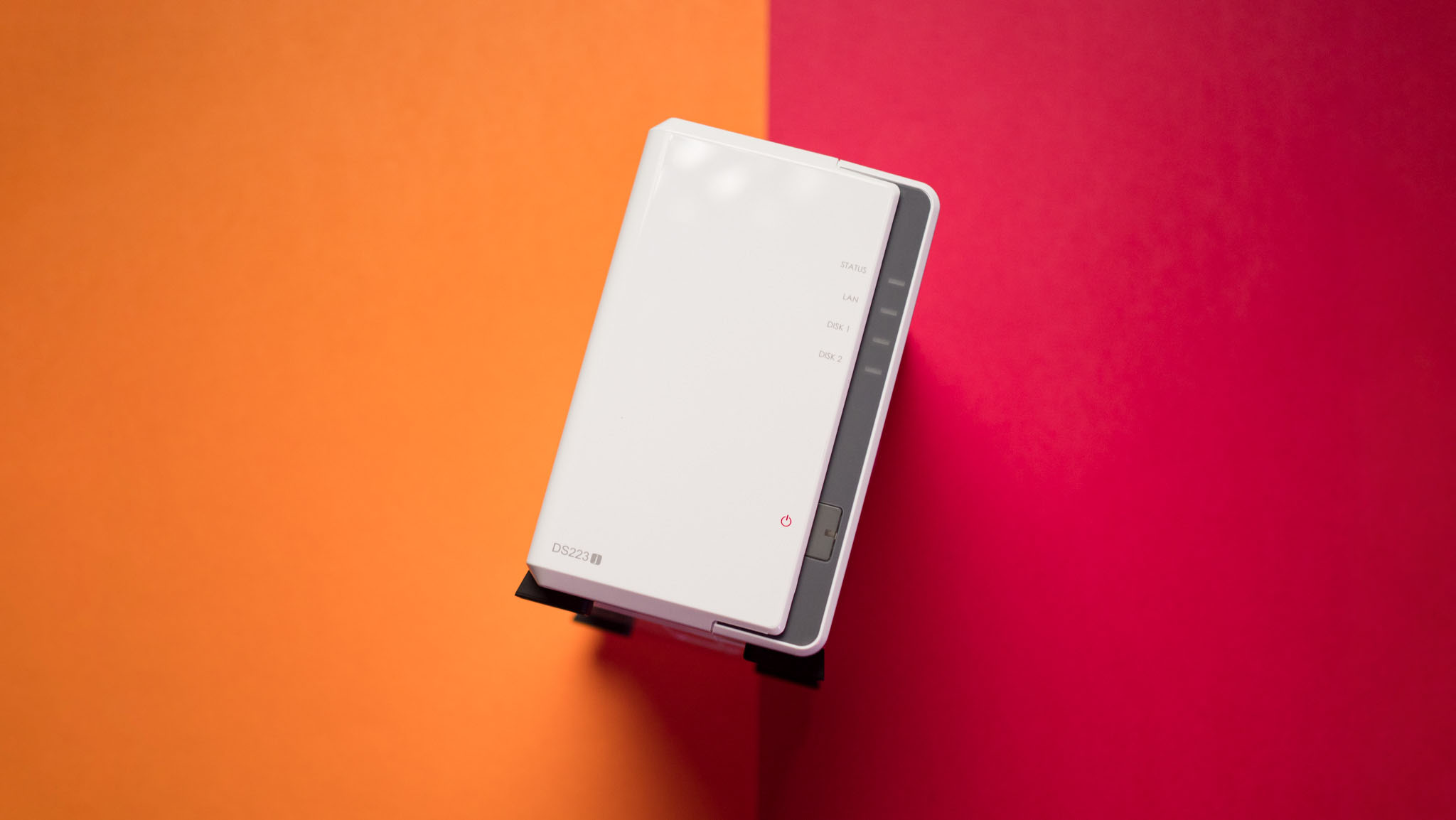
Specifications
Reasons to buy
Reasons to avoid
✅You want the best budget NAS. The DS223j doesn't have the best hardware, but it makes it easier than ever to try out everything that's available with a NAS.
❌You need the extras. While the DS223j has the basics covered, it doesn't have all the advanced utilities that are standard in the Plus models.
The DiskStation DS23j is the easiest way to get started with Synology's products. Its value-focused pricing makes it a good starter choice if you're unsure how a NAS fits into your use case. The NAS doesn't have powerful internals, but it does a good job in daily use, and it gives you a taste of what's available with the DiskStation Manager software.
You can back up photos and videos, store data with ease, and even run the DS223j as a centralized media server. It holds up well when it comes to the essentials, and while it doesn't have some of the advanced utilities that you get with the Plus models — like running a VM — it is an unbeatable value.
If you don't mind missing out on the extras, the DS223j has plenty to like.
Best starter NAS
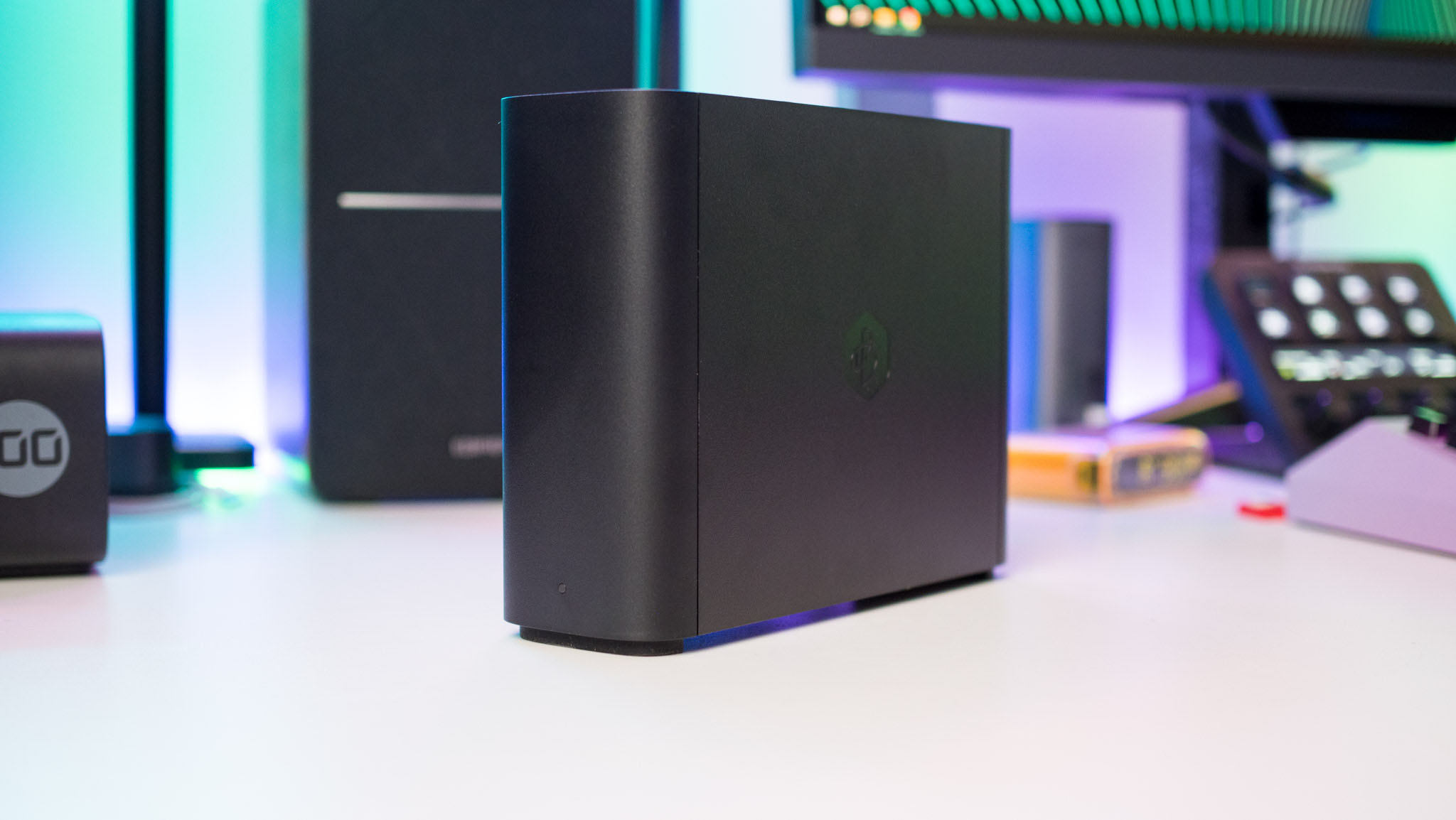
Specifications
Reasons to buy
Reasons to avoid
✅You need an all-in-one solution. Unlike all the other models on this list, the BeeStation comes with an integrated 4TB drive, making it a hassle-free choice if you just need a basic storage solution.
❌You want the extras. You don't get media streaming or any of the other extras that are standard on DiskStation models.
The BeeStation is interesting in that it lowers the barrier to entry for NAS systems. While it isn't a traditional NAS, it comes with built-in storage — something you don't get with any of the other models in this list — and that makes it highly convenient to set up and use.
It doesn't have the brand's DiskStation Manager software, but you get a lighter feature-set that still does a good job at backing up photos and videos and giving you easy access to your data. If you don't want to set up a full-fledged NAS but still want to back up data locally, the BeeStation is a great integrated solution.
The biggest plus point is that you don't need to buy additional storage; the device comes with a 4TB drive installed as standard, and that gives you enough storage if you're just getting started.
Best Plex NAS
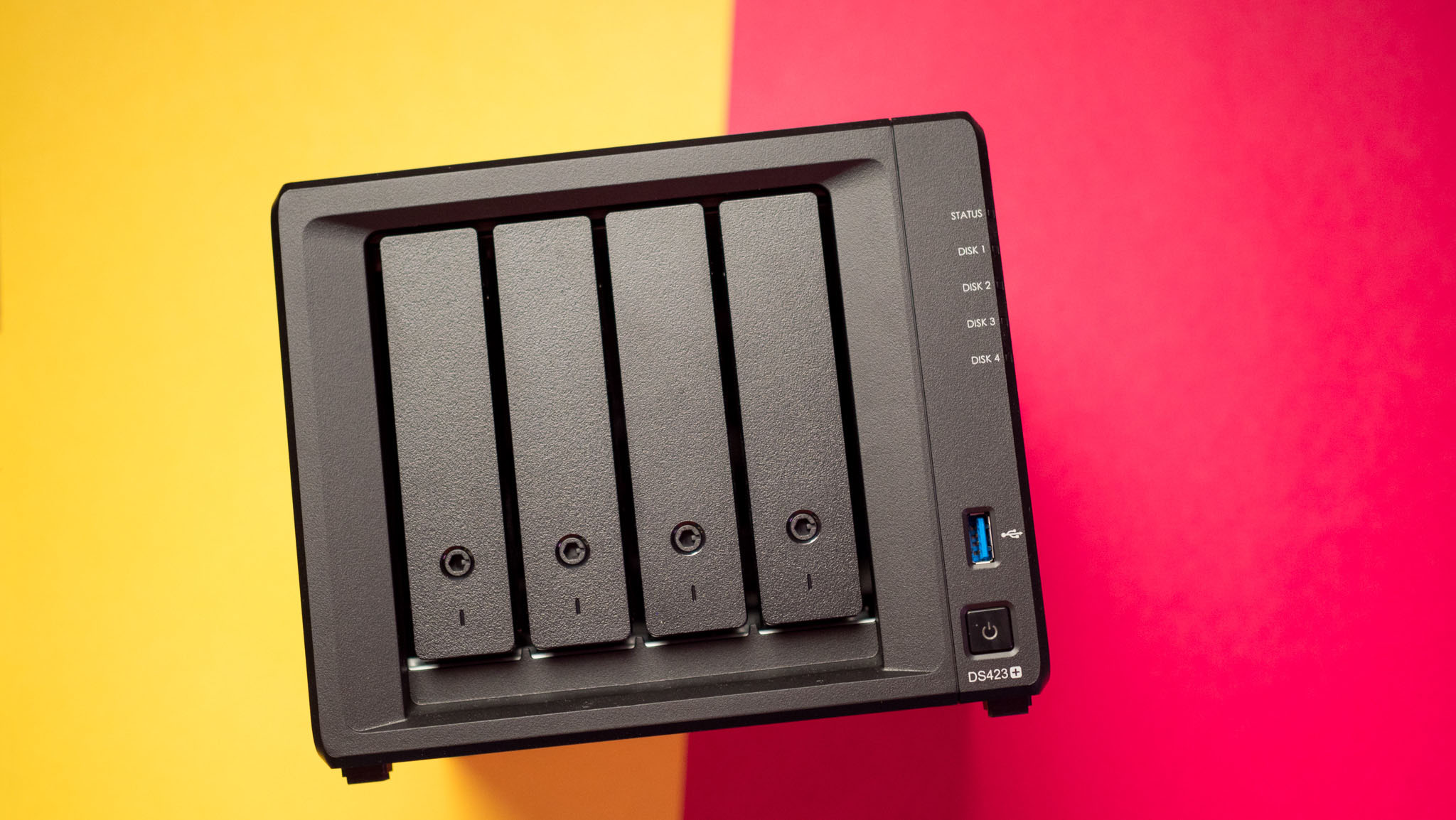
Specifications
Reasons to buy
Reasons to avoid
✅You need a robust Plex server. Thanks to a reliable Intel platform and huge addressable storage, the DS423+ is a terrific Plex NAS.
❌You need multi-Gigabit connectivity. The DS423+ has Gigabit connectivity, and you don't get 2.5 Gigabit ports, something that's now standard with its rivals.
Thanks to the Intel Celeron J4125 platform, the DiskStation DS423+ is a fantastic Plex NAS system. There's a native Plex client, and it has transcodes — something that isn't available with the AMD-based DS925+. This gives the DS423+ an inherent advantage, and it also has four drive bays and M.2 slots.
While the 2GB memory is on the lower side, you can switch it out with relative ease. The software is the main differentiator, with DiskStation Manager giving you all the software utilities you might need. There's Gigabit Ethernet, and the hardware is about as reliable as it gets in this category.
The biggest omission is that you don't get multi-Gigabit connectivity, but that isn't a huge deal, and you can use Link Aggregation to bridge the ports. That said, all the other models in this category now include at least 2.5GbE as standard.
Best 4-bay NAS
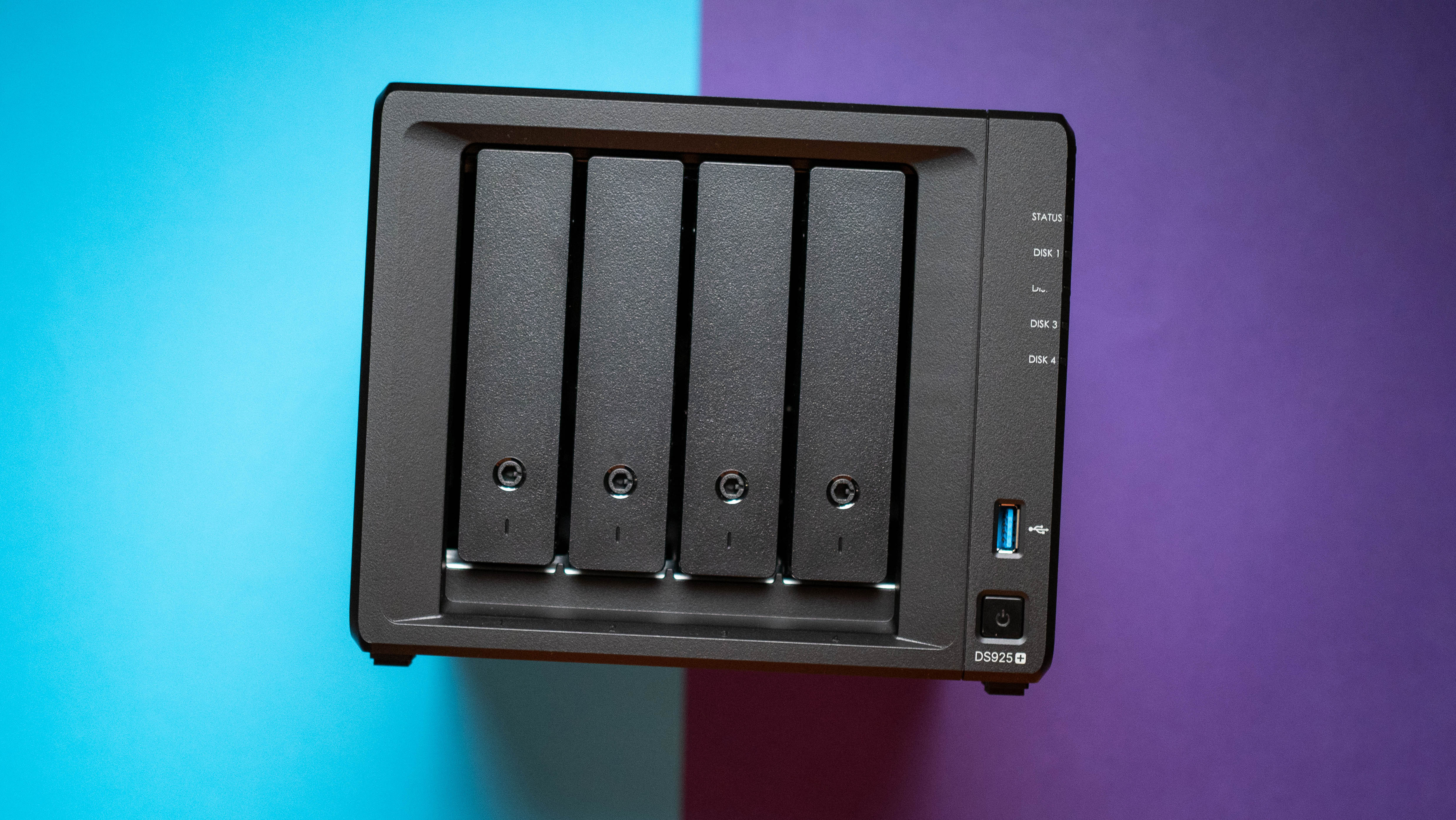
Specifications
Reasons to buy
Reasons to avoid
✅You need all the extras. The DS925+ is a great Plex server in its own right, and the Ryzen hardware gives it an advantage.
❌You need hardware transcodes. The Intel-based DS423+ is a better choice if you absolutely need transcodes in Plex.
The DiskStation DS925+ launched a while ago, but with Synology restricting the use of hard drives, I wasn't comfortable recommending the model. But that stance has thankfully reversed, and the DSM 7.3 update doesn't have any HDD limitations. That makes the DS925+ a good choice if you need a new 4-bay NAS.
The Ryzen-based platform is plenty fast, and we finally get 2.5GbE Ethernet connectivity as standard — a decent upgrade in its own right. There's still no hardware transcoding, but that hasn't proven to be an issue in my use case in several years. Still, if you need the feature in Plex, you will need to get an Intel-based model — the DS423+ would be my choice.
The software continues to be the major differentiator, and the changes to the hardware and introduction of multi-Gigabit connectivity makes the DS925+ a good choice if you need a new 4-bay NAS.
Upgrade pick
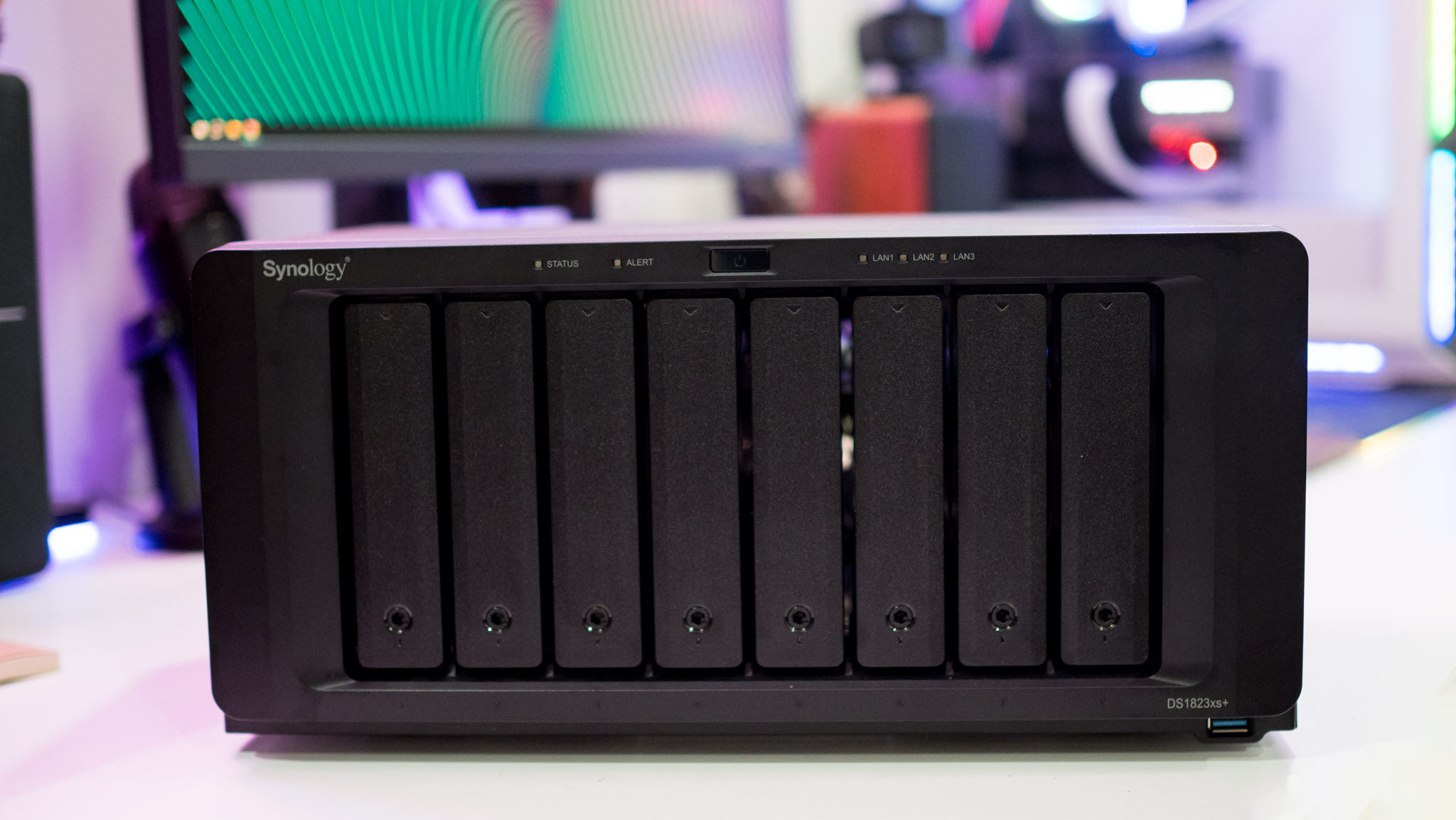
6. Synology DiskStation DS1823xs+
Specifications
✅You need the best hardware. With powerful Ryzen internals, 10GbE connectivity, and all the extensibility you need, the DS1823xs+ is a real powerhouse.
❌You want the best value. Coming in at $1,799, this 8-bay NAS isn't a good value.
As I write this, I've used the DiskStation DS1823xs+ as my main NAS for just over 15 months; I have nearly 150TB of data housed in the NAS, and use it to stream media, store photos, videos, and run about a dozen utilities I rely on daily. The Ryzen V1780B platform has plenty of power, and it does a brilliant job at day-to-day tasks as well as intensive workloads involving VM use.
The NAS comes with 8GB of RAM installed as standard, and I added a 16GB module, bringing total memory to 24GB. There are eight HDD bays, and two M.2 slots on the underside that let you install SSDs; I have six HDDs in the NAS, and two SSDs — where one is used to store Roon's database. What I like the most is that it has 10 Gigabit Ethernet installed out of the box, and you also get dual Gigabit Ethernet ports alongside it. Basically, you're not missing out at all when it comes to connectivity.
While this isn't the fastest NAS I have in the house, I use it predominantly due to the quality of the software. The DS1823xs+ has the best software utilities, and it has held up incredibly well as an enthusiast NAS system. My main issue with the NAS is that it needs the brand's own drives; the limitation is annoying at times, but it isn't anywhere as strict as the DS925+ — you can still set up storage pools and slot in any NAS drive you want.
I have Seagate's 24TB Exos and IronWolf drives in the DS1823xs+, and they've been going strong. If you've had a NAS system and want something with plenty of storage, great hardware, and 10GbE connectivity, you should get the DS1823xs+.
How to choose
NAS systems come in all sizes and options, so if you're just starting out and don't really want a high-end device, I'd suggest getting the DS224+. At $300, it doesn't cost a lot even after adding hard drives, and the value you're getting out of it is pretty great.
If you've had a NAS and want something with a bit of power, I'd recommend the DS925+. It doesn't have transcoding, but it nails the basics, and it is a fabulous choice to test all the software features present in DiskStation Manager.
And if you are setting up a multimedia server and want the best possible hardware, the DS1823xs+ is the way to go. This beast of a NAS has all the extras you need in 2025, and it has proven to be amazing.
+. It doesn't have transcoding, but it nails the basics, and it is a fabulous choice to test all the software features present in DiskStation Manager.
And if you are setting up a multimedia server and want the best possible hardware, the DS1823xs+ is the way to go. This beast of a NAS has all the extras you need in 2025, and it has proven to be amazing.
How we test
My testing methodology for the best Synology NAS servers
Why you can trust Android Central
There are several things I consider when deciding what NAS servers to recommend. I tested all the NAS servers launched by Synology in the last 10 years, so I have a detailed understanding of the brand's portfolio, and its strengths — and weaknesses.
So when it comes to making my selections, I choose the models that I used the most. That's why the 2-bay DiskStation DS224+ gets the best vote; while it doesn't have the best hardware or the most number of drive bays, it is a great all-round choice, and I believe it will serve you well if you're just getting into the world of NAS servers.
With AMD-based designs missing hardware transcodes, that is another consideration when picking a Plex NAS. That's why I went with the DS423+ instead of the DS925+; while the latter has better hardware, it doesn't have transcoding, and I know that is a key requirement in this category.
I used all the NAS models highlighted above for at least a few months, and the DS423+ and DS1823xs+ are essentially my daily drivers, and they have thousands of hours of use. Both models are still going strong, and that's why they made the list.
Get the latest news from Android Central, your trusted companion in the world of Android

Harish Jonnalagadda is Android Central's Senior Editor overseeing mobile coverage. In his current role, he leads the site's coverage of Chinese phone brands, networking products, and AV gear. He has been testing phones for over a decade, and has extensive experience in mobile hardware and the global semiconductor industry. Contact him on Twitter at @chunkynerd.
